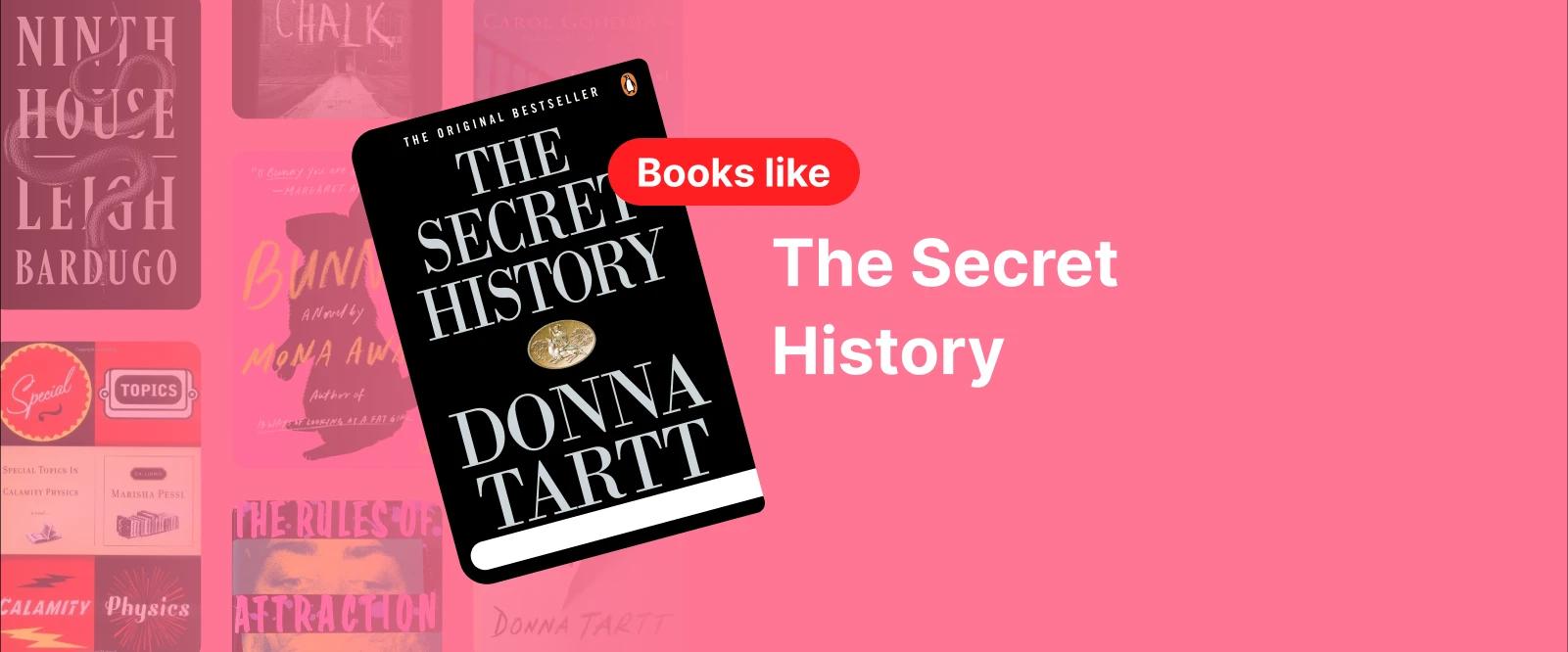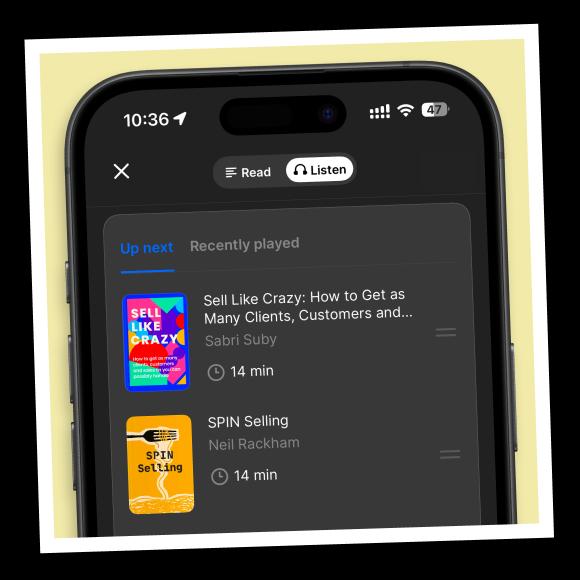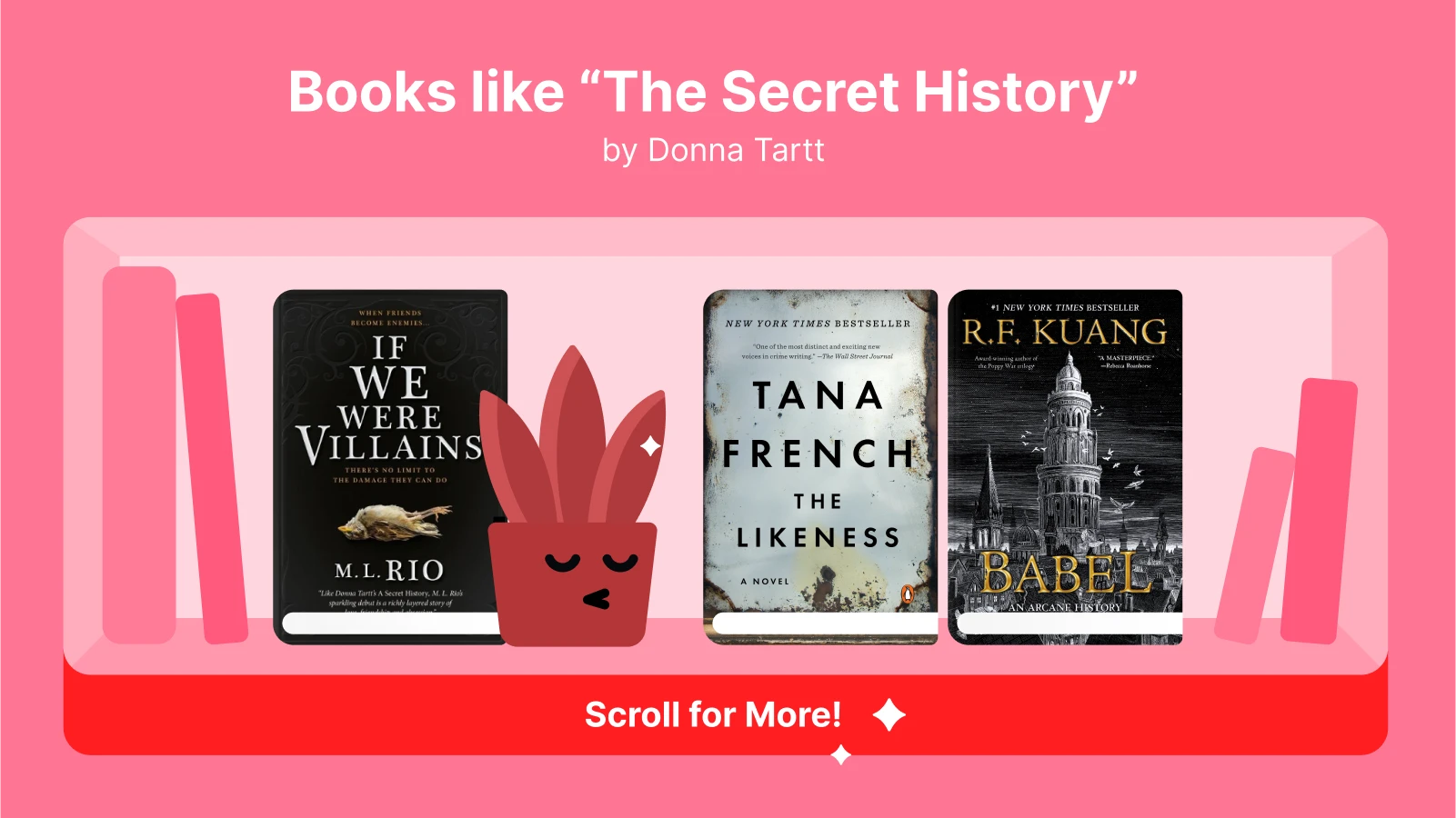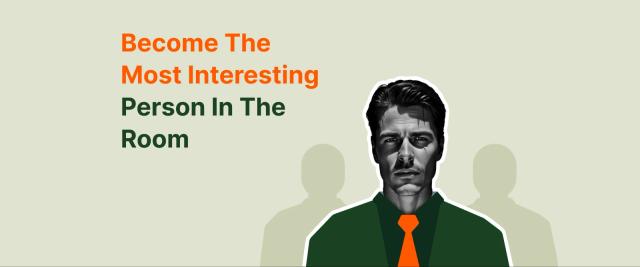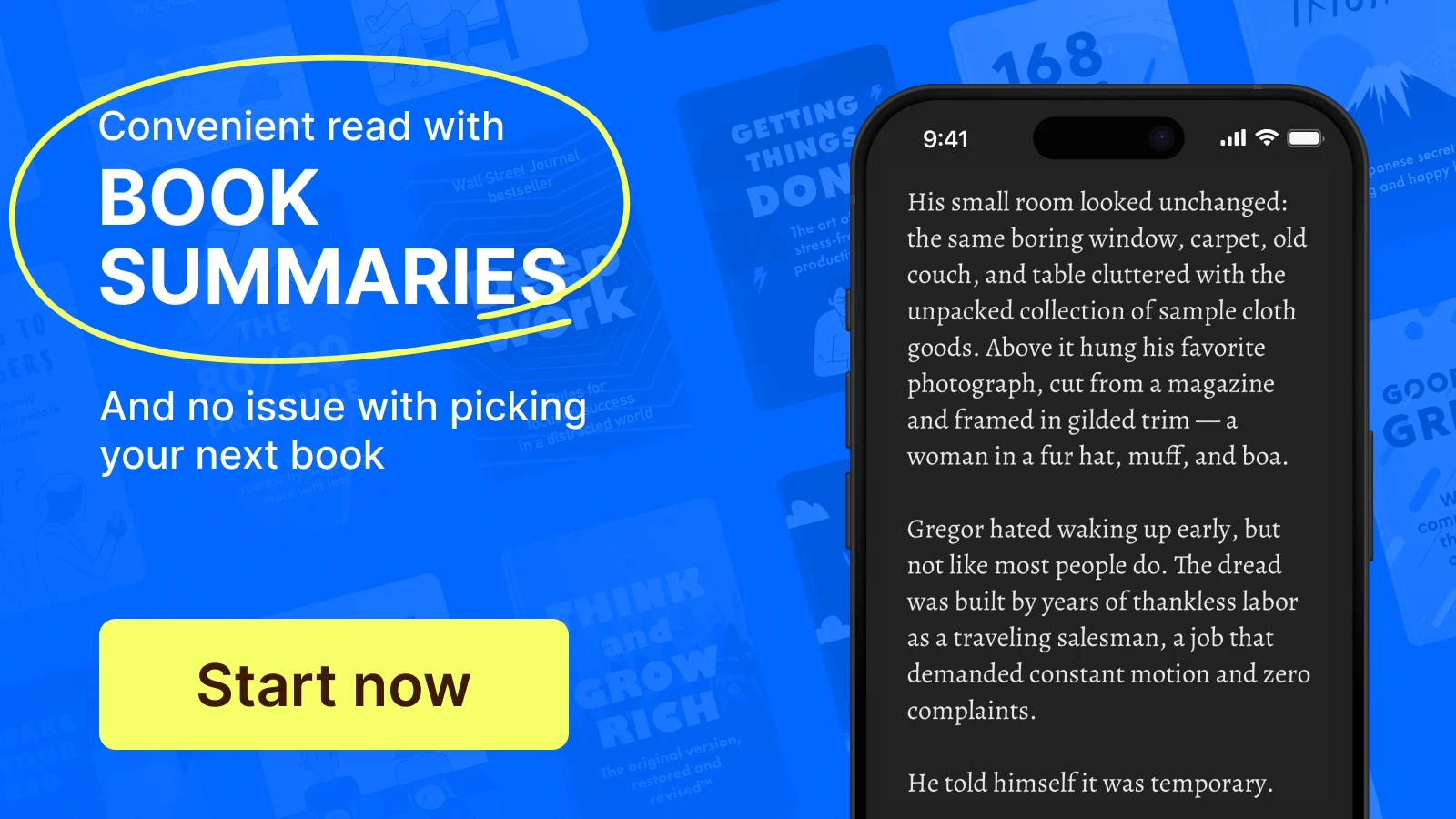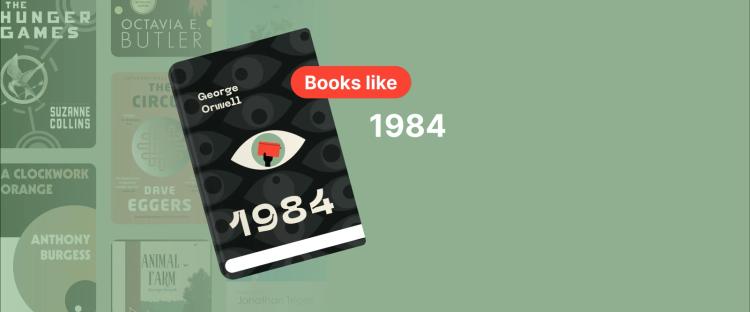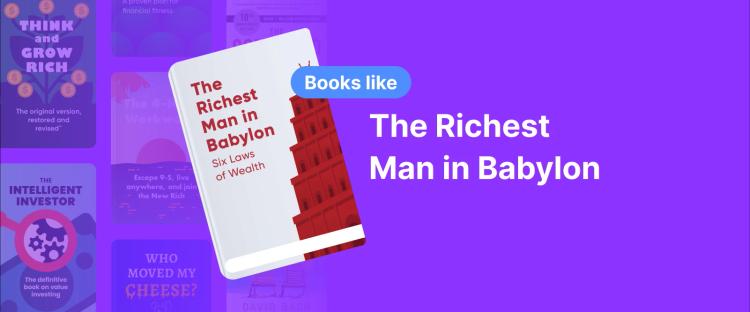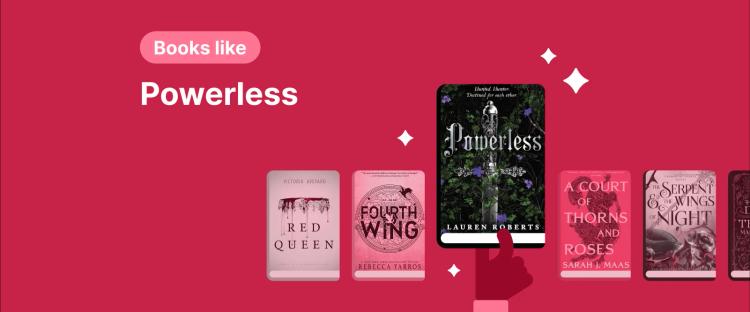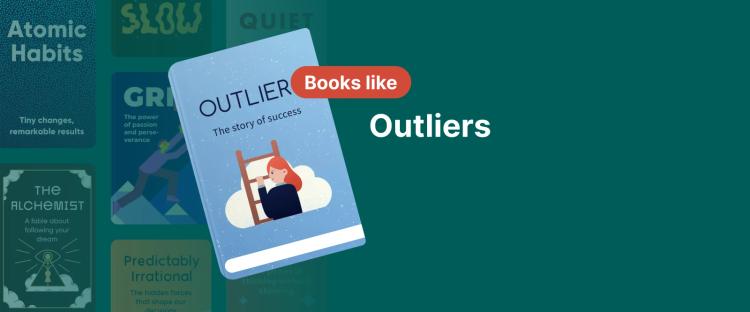We've curated the best books like 'The Secret History' that capture this energy. But if you want to be challenged without spending months on thousand-page tomes, try Headway. This app helps you absorb the sharp thinking behind the world's bestselling books — without sacrificing your real life. It distills complex nonfiction into 15-minute summaries that make you smarter every day.
Download Headway and train your brain like the characters you admire — but faster and smarter.
Quick answer: What are the top 5 books like 'The Secret History' to read in 2025?
'If We Were Villains' by M.L. Rio: The ultimate book about arts college students who go rogue.
'The Likeness' by Tana French: A detective goes undercover in a house of hyper-intellectuals.
'Babel' by R.F. Kuang: A brilliant fantasy-infused take set at Oxford University.
'Special Topics in Calamity Physics' by Marisha Pessl: A highly intellectual young woman's quest to solve a teacher's death.
'Ninth House' by Leigh Bardugo: Alex Stern joins Lethe House, a secret society overseeing the university’s dark magic. Soon, he uncovers a conspiracy rooted in murder.
12 best books like 'The Secret History' to fill your Dark Academia void
These book recommendations hit all the right notes: isolated settings, charismatic groups, dark morality, and high-stakes drama. Be sure that any of these titles might just become your new favorite obsession.
1. 'If We Were Villains' by M.L. Rio
A group of seven actors at an elite arts college live and breathe Shakespeare. After years of intense, sometimes dangerous competition, one of the group ends up dead. Ten years later, the student convicted of the crime is released from prison and must finally reveal what really happened. This book is a murder mystery built on theatrical rivalry.
Similarities between the books:
A small, isolated group of deeply obsessive college students.
The plot revolves entirely around a crime committed within the group.
Intense focus on classical literature and performance arts.
📘 Decode group psychology — get Headway
2. 'The Likeness' by Tana French
This psychological thriller sees Detective Cassie Maddox go undercover at a remote college estate. She is investigating the murder of a girl who looks exactly like her. The girl was living a life among four other brilliant, tightly-knit, and wealthy students. Cassie must essentially become the dead girl, infiltrating the intense, isolated group.
Similarities between the books:
Inspired by Donna Tartt's novel.
A group of privileged students living in a secluded, cult-like atmosphere.
The tension comes from an outsider attempting to penetrate a bizarre, secret society-style group.
And if you’re drawn to exploring the depths of human psychology, 'The Shrine of Jeffrey Dahmer' by Brian Masters offers a meticulously researched look into the life and motives of one of history’s most infamous killers — revealing the haunting complexity of evil in its rawest form.
3. 'Babel' by R.F. Kuang
This new book is a powerful fantasy novel set primarily in 1830s Oxford. Robin Swift is brought to England to study at Babel, Oxford University's Royal Institute of Translation. Babel is the center of all power and magic in the British Empire. Robin must choose between Babel and the secret group working to stop colonialism. The book blends historical fiction with fantasy and postcolonial themes.
Similarities between the books:
An intelligent, displaced outsider attending an elite, powerful university.
Features an extremely selective, language-focused academic department.
Explores the dark consequences of intellectualism and power.
4. 'Ninth House' by Leigh Bardugo
Galaxy "Alex" Stern is an unlikely freshman recruited to Yale University. She is tasked with monitoring the activities of the famous, and often lethal, secret societies on campus. These societies use dark magic to acquire wealth and power. Alex must investigate a murder mystery that the school is trying to cover up.
Similarities between the books:
Set at an ancient, elite American university (Yale, instead of Hampden).
Focuses heavily on the sinister nature of secret societies and wealth.
Has a grounded dark academia feel while dealing with supernatural gothic themes.
If the toxic power dynamics and hidden horrors within elite circles captivate you, 'If You Tell' exposes something even more chilling — three sisters surviving their mother's sadistic reign of terror, proving that sometimes the most dangerous secrets aren't hidden in universities, but in homes.
5. 'Special Topics in Calamity Physics' by Marisha Pessl
Narrated by the preternaturally intellectual Blue van Meer, the story follows her through her final year of boarding school after a childhood of moving with her professor father. When her charismatic teacher, Hannah Schneider, is found dead, Blue decides to solve the murder mystery. The book is structured like an intellectual game, with chapter titles referencing classic literature.
Similarities between the books:
The protagonist, Blue van Meer, is a hyper-articulate outsider with a troubled past.
It revolves around a suspicious death at an isolated prep school.
Filled with constant literary and philosophical references.
6. 'Black Chalk' by Christopher J. Yates
Six students at Oxford University start a dangerous game, believing it will bond them for life. The game is called "Black Chalk." It starts as harmless pranks but escalates into financial ruin, psychological terror, and eventually, tragedy. A decade later, the survivors meet for one final, terrifying round of the game.
Similarities between the books:
A group of privileged students attending Oxford University.
The central concept is a game with rules only known to the small group.
Deals with the lasting trauma of a violent event in their college student years.
Wondering how a harmless game spirals into destruction? 'The Anatomy of Human Destructiveness' breaks down exactly what Yates dramatizes — Erich Fromm's analysis of how power and aggression corrupt groups reveals the psychology behind why intelligent people make catastrophic choices.
7. 'Bunny' by Mona Awad
Samantha is a scholarship student at a highly exclusive creative writing MFA program in a New England arts college. She hates her classmates, a clique of saccharine, cloyingly feminine girls she calls "The Bunnies." But when Samantha is reluctantly drawn into their strange world of workshops and rituals, she finds herself tangled in a bizarre and horrific plot.
Similarities between the books:
An outsider infiltrating a tightly closed and bizarre academic clique.
The atmosphere is dark, saturated with satire, and descends into surreal horror.
A twisted take on competitive intellectual life and friendship.
📘 Master the art of courtship with Headway.
8. 'The Rules of Attraction' by Bret Easton Ellis
Set at the fictional Camden College, this book explores the decadent, nihilistic lives of wealthy college students. It details a hedonistic cycle of drugs, alcohol, and cynical relationships.
Similarities between the books:
The author attended the same school as Donna Tartt, writing about the same strange academic environment.
Captures the darker, amoral reality of privileged youth in a boarding school-style setting.
It offers a psychological thriller about the self-destruction of a young man and his friends.
If Ellis's brutal take on privileged self-destruction makes you question modern fragility, 'I'm Your Emotional Support Animal' on Headway flips the script — Adam Carolla challenges the cycle of emotional dependence with sharp wit, pushing for the self-reliance these fictional characters desperately lack.
9. 'The Lake of Dead Languages' by Carol Goodman
Twenty years after a mysterious triple suicide at Heart Lake School for Girls, Jane Hudson returns to her old boarding school as a Latin teacher. The school is known for the dark legends whispered by its students. When a new generation of girls begins to repeat the exact same tragic patterns, Jane must finally uncover the truth about her past.
Similarities between the books:
Combines classics and Latin with a gothic boarding school setting.
The core plot is a murder mystery from the past resurfacing in the present.
Heavy sense of atmosphere and recurring tragedy tied to the lake.
📘 Uncover patterns from your past with Headway.
10. 'The Goldfinch' by Donna Tartt
Tartt's Pulitzer Prize-winning bestseller follows Theo Decker from age 13 into adulthood. After surviving a terrorist attack in a New York museum that kills his mother, he steals a priceless painting called The Goldfinch. The book tracks his troubled path through wealth, poverty, addiction, and crime, all driven by his secret obsession with the stolen painting.
Similarities between the books:
Written by the same author, focusing on obsession, moral corruption, and art.
A young man hiding a dark secret that guides his entire life.
A sweeping, complex literary style that focuses on atmosphere.
And if 'The Goldfinch' drew you in with its themes of obsession, you'll find a real-life echo in 'I'll Be Gone in the Dark' by Michelle McNamara. This gripping true-crime narrative is the author's relentless pursuit of the Golden State Killer — an investigation that becomes both a testament to justice and a haunting study of how obsession can consume a life.
11. 'The Bellwether Revivals' by Benjamin Wood
Oscar Lowe is drawn into King's College, Cambridge, by the enigmatic Eden Bellwether, a charismatic musical genius. Eden is convinced his music can heal the sick, leading his inner circle into increasingly intense and dangerous experiments. Oscar must decide if Eden is truly a prodigy or a manipulative, narcissistic young man on the verge of madness.
Similarities between the books:
Features a charismatic leader with a fanatical following among college students.
The setting is a highly exclusive circle within a prestigious place like Cambridge.
A question of whether the genius is divine or pathological.
12. 'The Picture of Dorian Gray' by Oscar Wilde
This literary favorite book is a cornerstone of the entire Dark Academia aesthetic. A beautiful young man, Dorian Gray, wishes that a portrait of himself would age and bear the marks of his sins instead of him. His obsession with beauty and hedonism, guided by the witty Lord Henry, leads him down a path of corruption and tragedy.
Similarities between the books:
The foundational text for the dark academia themes of aestheticism and moral decline.
Focuses on a charismatic young man whose beautiful surface hides inner darkness.
A psychological study of obsession, friendship, and murder.
📘 Understand hidden darkness with Headway.
Level up your intelligence with Headway
The characters in these dark academia books are obsessed with logic and self-mastery. You can get a dose of that same intellectual transformation without committing to a full 800-page read with Headway.
Headway breaks down bestseller nonfiction books on various topics, such as psychology, logic, and self-improvement, into actionable 15-minute summaries.
That means you can absorb the core concepts from complex works — like the psychology behind cult dynamics or the history of art theft — while commuting, exercising, or just taking a break. It's the perfect way to feed your inner intellectual when you can't dive into another full Dark Academia novel.
Ready to start training your mind from today?
Download Headway and unlock quick insights that help you become sharper and achieve more.
Frequently asked questions about books like 'The Secret History'
What book should I read if I liked 'The Secret History'?
Start with 'If We Were Villains' by M.L. Rio — it's practically 'The Secret History' with Shakespearean actors instead of Greek scholars. For magic and murder at Yale, try 'Ninth House' by Leigh Bardugo or dive into 'Babel' by R.F. Kuang for Oxford, linguistic magic, and colonial resistance wrapped in brilliant worldbuilding.
What is dark academia, and why is it so popular?
Dark academia romanticizes higher education through Gothic architecture, classic literature, and obsessive intellectual pursuits. It exploded the pandemic, when campuses closed and learning became aspirational. One writer notes that it's far more achievable than cottagecore — just throw on a blazer and read Donna Tartt. It offers depth in a shallow world, connecting us to history and substantial ideas.
What books are considered dark academia?
Aside from 'The Secret History' by Donna Tartt, try a classic like 'The Picture of Dorian Gray' by Oscar Wilde. Fantasy lovers would also enjoy 'A Deadly Education' by Naomi Novik. Other essential reads are 'If We Were Villains' by M.L. Rio, 'Ninth House' by Leigh Bardugo, and 'Babel' by R.F. Kuang.
Is 'Harry Potter' considered dark academia?
Not really. We would call Harry Potter dark academia lite. Harry Potter serves as a gateway to the dark academia aesthetic for many because of its ambience and school setting, but it is not classified as part of the dark academia genre itself, which tends to emphasize more somber, morally complex, and often realistic academic narratives.
What's the opposite of dark academia?
The opposite is Light academia, the optimistic counterpart coined on Tumblr in 2019. It has the same love for learning, but swap moody libraries for sun-drenched picnics, tragedy for joy, black blazers for linen sundresses. Light academia celebrates simple pleasures, like poetry in parks, warm tea, and open windows, while dark academia dwells in shadows and existential questions.

